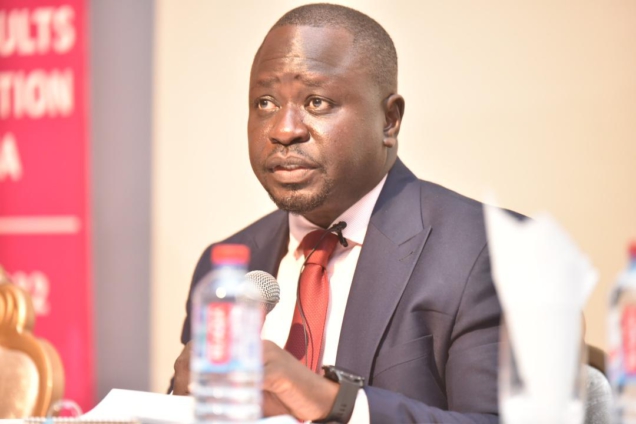The Ghana Statistical Service (GSS) has expressed reservations about the government's Agenda 111 initiative, citing concerns about the locations and accessibility of healthcare facilities nationwide.
According to findings from the 2022 Demographic and Health Survey (DHS) Report, which surveyed 618 clusters across 261 administrative districts, a significant 40% of Ghanaian women aged 15 to 49 face travel times exceeding 30 minutes to 2 hours for healthcare access.
Government Statistician Prof. Kobina Anim stressed the need for urgent action to address this issue and prevent potential challenges in the future.
He made this known during the presentation of the said report on Thursday, January 18.
“We identify that about 2/5 that is in excess of 40% of women aged 15 to 49 years were travelling in excess of 30 minutes to access the nearest health facility.
“This puts into context the government’s intervention of Agenda 111 where it is being situated and the extent it is going to affect the fact that we have people traveling in excess of 30 minutes, specifically 40% of people traveling in excess of 30 minutes to access the nearest health facility.
“Of importance to us is the disaggregation across the 16 administrative regions.”
“And from the perspective of those travelling more than two hours to access the nearest health facility where we identify the Oti region as having more than 10% of women aged 15 to 49 years travelling over two hours to access the nearest facility. The range is from 0.8 in the Eastern region to 11.6%.
“This is where the conversation around the situation of Agenda 111 should be reflected. As in is it dominant in these places where we see a lot more people travelling over two hours to access a health facility,” he said.
Meanwhile, the Director-General of the Ghana Health Service, Dr. Patrick Kuma Aboagye, affirmed his dedication to addressing the disparities within the health sector.
“While some targets have been met nationally, it is a concern that several regions fall short, showing substantial regional disparities for almost all indicators including skill delivery, and percentage of children without vaccinations.
“In the face of these challenges, our service commits to providing strong leadership and clear guidance to ensure coordination among multiple partners of the sector.”
“I must say that the regional disparities also shore gross disparity among the newly created regions which we see also and that is why GHS moved in there very early to ensure that we can focus on these deprived areas. And we are hoping that the next DHS will show better results in these areas.
“So we pledge to deliver high-quality services at both the facility and community levels, but we will require the support of our media and the entire population to ensure that this is done,” he said.
Latest Stories
-
Stampede in southwestern Nigerian city causes multiple deaths
22 minutes -
Tens of thousands without water in Mayotte as curfew brought in
35 minutes -
ORAL: We won’t witch-hunt, we’ll focus on transparency, not revenge – Ablakwa
58 minutes -
Attempted robbery: Accused claims he carried cutlass for protection
1 hour -
Excavator operator jailed for stealing
1 hour -
African fans age-shame me for putting on some outfits – Tiwa Savage
2 hours -
Tiwa Savage criticised by female fans for stance on cheating in relationships
2 hours -
Bank of England expected to hold interest rates
2 hours -
Congo river boat sinks killing at least 22
2 hours -
Nigeria approves Shell’s $2.4 billion asset sale to Renaissance
3 hours -
Embattled Liberian speaker questioned by police over parliament fire
3 hours -
‘I won’t be a judge in my own court; ORAL is about protecting public purse’ – Ablakwa
4 hours -
Bawumia joins thousands in Kumasi for burial prayers for Ashanti Regional Imam
4 hours -
Blue Gold Bogoso Prestea Limited challenges government actions in court
4 hours -
Verdicts due for 51 men in Pelicot mass rape trial that shook France
4 hours

